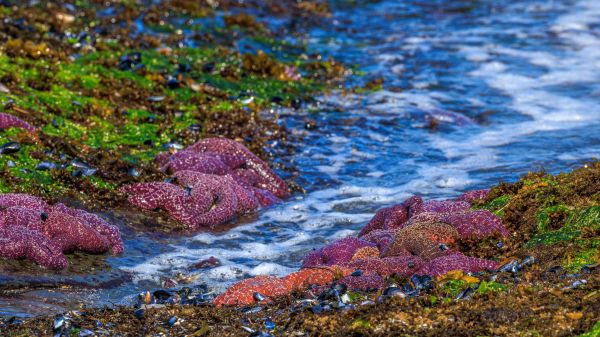Ocean Literacy: From Grassroots Movement to Global Educational Revolution

Twenty years ago, a small group of scientists and educators gathered virtually to discuss what every person should know about the ocean. That modest 2004 workshop has since evolved into a global movement reshaping how we teach marine science and conservation worldwide. For environmental educators today, understanding this transformation, and the practical insights emerging from recent research, offers valuable guidance for creating more effective ocean education programs.
View eeRESEARCH Collection: Water and Marine Education
The Power of Professional Development
One of the most encouraging findings comes from Australia, where researchers demonstrated that comprehensive teacher training can dramatically overcome barriers to ocean education. Before participating in a specialized professional development program, 83% of primary school teachers felt unprepared to teach marine topics. After just 25 hours of training focused on the Great Southern Reef, 80% reported feeling very or extremely well-prepared, and most began incorporating ocean content weekly across different subjects.
The secret wasn't just providing information, it was combining expert facilitation with hands-on experiences, curriculum-aligned resources, and ongoing support. Teachers particularly valued the program's use of children's picture books as entry points to complex marine concepts, demonstrating that familiar educational tools can increase confidence while creating emotional connections between students and marine environments.
Practical takeaway: Don't underestimate the impact of quality professional development. Even busy teachers with overloaded curricula can successfully integrate ocean education when provided with the right support, resources, and training that connects to their existing frameworks.
Technology as a Game-Changer
The integration of innovative technologies is revolutionizing ocean education in unexpected ways. Underwater virtual reality (UVR) represents perhaps the most fascinating development, creating "double immersion" experiences where learners wear waterproof VR headsets while floating in pools. This approach generates powerful emotional responses of awe, empathy, and connection, that traditional classroom methods struggle to achieve.
Research shows UVR particularly excels at enhancing awareness, attitudes, and ocean connectedness rather than factual knowledge transfer. For landlocked populations who may never experience real ocean environments, such technologies can bridge critical gaps in first-hand marine experiences. However, the key lesson isn't about the technology itself—it's about quality content and pedagogical design that serves clear learning objectives.
Beyond VR, successful programs are incorporating game-based learning, digital storytelling, and social media integration. Italy's "SeAdventure" game effectively teaches marine conservation while motivating environmentally friendly behaviors, while digital storytelling projects in Greece and Portugal help students share marine conservation messages with broader communities.
Practical takeaway: Technology should enhance, not replace, good pedagogy. Focus on learning objectives first, then consider how emerging technologies might create more engaging, accessible, or emotionally resonant experiences.
The Critical Role of Citizen Science
Marine citizen science projects now engage thousands of participants globally, from recreational divers documenting species distributions to communities monitoring water quality. A comprehensive review of 74 projects worldwide reveals both tremendous potential and important gaps. While these initiatives successfully engage diverse audiences in real scientific research, most remain concentrated in Western regions and limit participants to data collection rather than involving them throughout the entire scientific process.
The most successful projects, like Australia's Redmap program, combine opportunistic data collection with meaningful scientific outcomes. Participants submit photographs of marine species observed outside their known distributions, contributing directly to climate change research while building personal connections to marine environments.
Practical takeaway: Citizen science offers authentic ways to engage learners in real research while building scientific literacy. Consider partnerships with existing programs or develop local initiatives that address genuine research questions in your region.
Scaling Through Organizational Partnerships
Environmental NGOs play crucial roles in ocean literacy implementation, as demonstrated by Malaysia's Nature Society, which conducted 467 marine education programs over five years. Their success came through employing three integrated strategies: knowledge dissemination (18.4% of activities), hands-on activities (78.9%), and knowledge application (3%). The emphasis on experiential learning proved particularly effective, with programs ranging from mangrove restoration to marine litter cleanup.
The organization's approach of managing Environmental Education Centers in diverse ecosystems enabled authentic place-based learning where students could directly observe and interact with environments they're learning to protect. This model demonstrates how strategic partnerships between NGOs, schools, government agencies, and corporate sponsors can create sustainable, large-scale impact.
Practical takeaway: Consider how your organization might partner with others to expand reach and impact. NGOs offer expertise and site access, schools provide curriculum integration, while government and corporate partners can offer funding and policy support.
Looking Forward: Opportunities and Challenges
While ocean literacy has achieved remarkable global reach, significant challenges remain. The original U.S. movement now relies primarily on volunteers due to funding cuts, highlighting sustainability concerns for educational initiatives. Assessment tools remain limited, particularly for measuring behavioral changes rather than just knowledge gains. Geographic representation skews heavily toward Western countries, leaving vast regions underserved.
Yet the opportunities are enormous. The UN Decade of Ocean Science for Sustainable Development (2021-2030) provides unprecedented momentum for coordinated international cooperation. Research shows ocean literacy education effectively supports multiple Sustainable Development Goals, from quality education to climate action to life below water.
For environmental educators, the message is clear: ocean literacy represents both a proven framework and an evolving field ripe with opportunities for innovation, collaboration, and impact. The question isn't whether ocean education matters. It's how we can build on two decades of learning to create even more effective programs for the next generation.
Join eePRO today and be a part of the conversation!
Comment and connect with fellow professionals in environmental education. Join eePRO >
